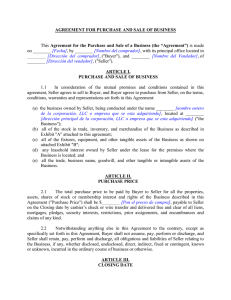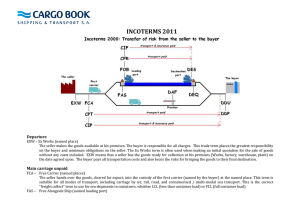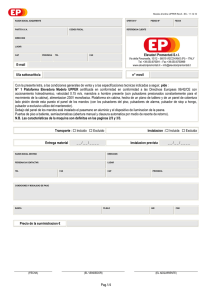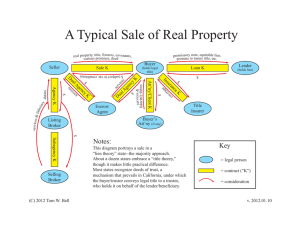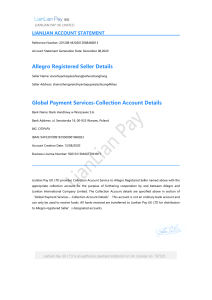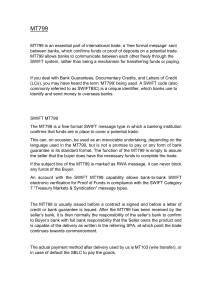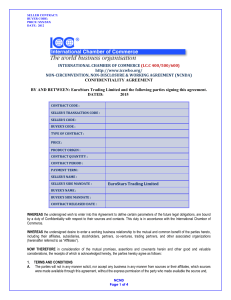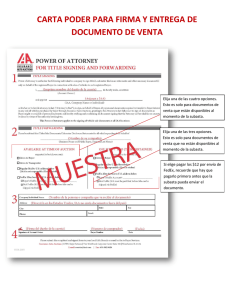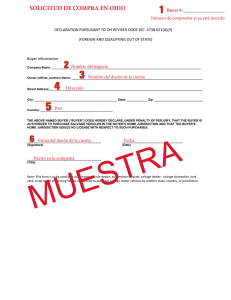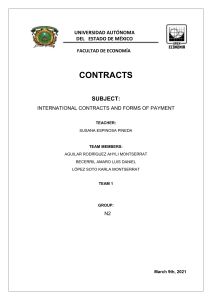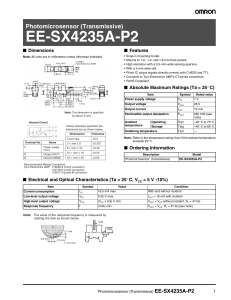1. EXW 2. FAS 3. FCA 4. FCA
Anuncio
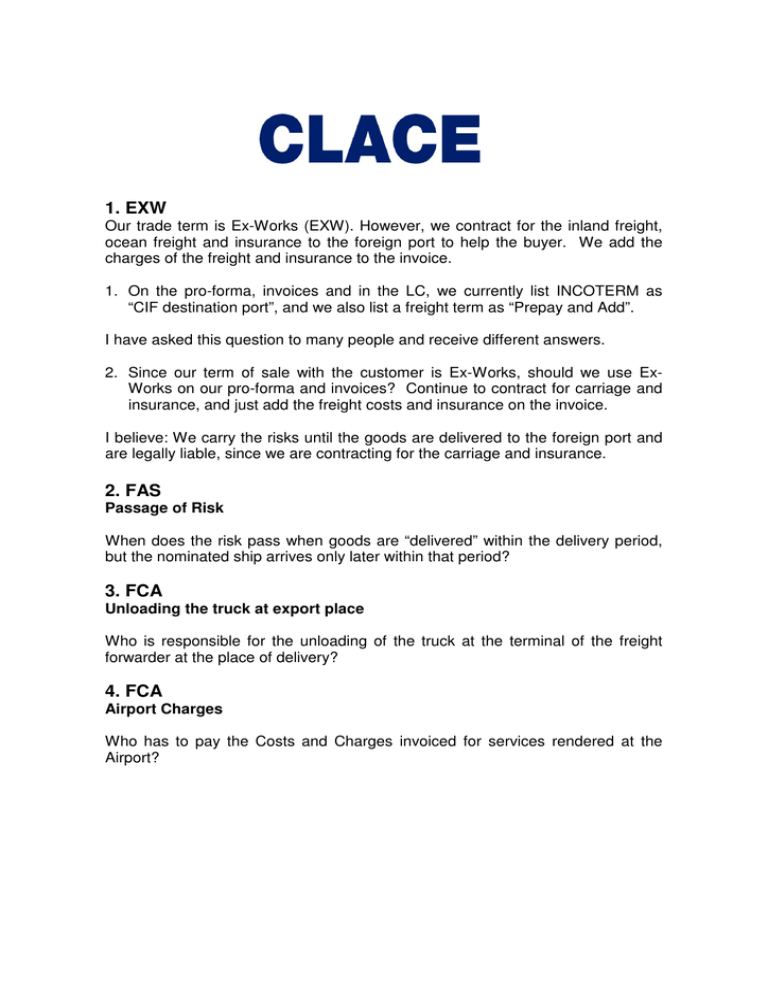
1. EXW Our trade term is Ex-Works (EXW). However, we contract for the inland freight, ocean freight and insurance to the foreign port to help the buyer. We add the charges of the freight and insurance to the invoice. 1. On the pro-forma, invoices and in the LC, we currently list INCOTERM as “CIF destination port”, and we also list a freight term as “Prepay and Add”. I have asked this question to many people and receive different answers. 2. Since our term of sale with the customer is Ex-Works, should we use ExWorks on our pro-forma and invoices? Continue to contract for carriage and insurance, and just add the freight costs and insurance on the invoice. I believe: We carry the risks until the goods are delivered to the foreign port and are legally liable, since we are contracting for the carriage and insurance. 2. FAS Passage of Risk When does the risk pass when goods are “delivered” within the delivery period, but the nominated ship arrives only later within that period? 3. FCA Unloading the truck at export place Who is responsible for the unloading of the truck at the terminal of the freight forwarder at the place of delivery? 4. FCA Airport Charges Who has to pay the Costs and Charges invoiced for services rendered at the Airport? 5. FOB Berthing Charges Who has to bear the Berthing Charges? 6. FOB Costs at Transshipment Port When goods are to be transshipped at a transshipment port are the loading costs to be paid by the Seller? 7. FOB Transfer of ownership. In a sales Contract of “FOB named place” basis, when is ownership of the goods transferred to the Buyer? 8. CFR Discharging costs – the default position Who bears the costs and risks of discharging the goods where the CFR term is used? 9. CFR On-carriage where goods are retained prior to arrival at destination port Where a seller sells CFR a named port, but then interrupts their carriage to that port by retaining them at another port, which party assumes. • The responsibility for their delay? • The risk for any damage, which might occur to them at the intermediate port of during their on-carriage? 10. CIF Transfer of risks Where a sale contract is expressed to be “CIF named port”, when is damage to the goods for the risk of the buyer? It is when the goods pass the ship’s rail at the named port? 11. CIF Damage to the goods after shipment A buyer takes delivery of a cargo of seeds purchased “CIF named port”. After the goods have cleared customs at the discharge port, the buyer has the seeds inspected and finds them not to conform to their specification in the original order. The supplier contends that the goods were as per specification when shipped. The buyer has not yet paid (the LC) for the goods. Is the buyer entitled to refuse to pay (the LC) for the goods, suggesting that the seller should look to his insurer for any recourse? 12. CPT I need your help to interpret an Incoterms (CPT). Who is defined as the “first carrier”? I’m a shipper. Is the “first carrier” defined when I load the truck from our facility or when load is transferred to the freight forwarder or transfer point? 13. CIP If a company sends goods to a destination that is at Istanbul-Turkey with a term of delivery condition ‘CIP Istanbul’, will the invoice include the transportation cost to Istanbul-Turkey or will it only include the insurance cost? 14. CIP The case we have at present is that the goods were dispatched on the terms “CIP Johannesburg”. No specific mention was made on whether the risk was to terminate at any named place, other than the general definition “Johannesburg”. The goods were stolen whilst at the Johannesburg International Airport, after they had been discharged from the aircraft, but before being delivered to the client, whose premises was within two kilometers from the airport. The question that is raised therefore is whether the term “CIP JOHANNESBURG” covers delivery to the goods to the client’s premises, for whether the seller’s risk terminates at the airport building, prior to upliftment by the buyer’s agent. Would it make any difference whether the consignment was delivered to premises, say situated 10 or 15 kilometers away from the airport but still within the greater Johannesburg area? 15. DES The contract of sale provides “DES Hamburg”. • Who has the right to select the specific point at Hamburg port? • How can parties change this? Who has to pay the costs for moving the goods on board the vessel to enable unloading by usual equipment? 16. DEQ Buyer buys a container of goods. The contract of sale contains the clause “DEQ Baltimore”. The container is placed in Baltimore’s quay. The parking place for the containers is in about 300 m distance from the ship. While trying to move the container into the final parking position, the trucker damaged the container. Who bears the risk? Seller or Buyer? 17. DAF It is possible to use the DAF term in a contract between a German seller and a buyer in Mexico, where the shipment is intended from Frankfurt Germany to the border between Mexico and USA and a combined transport document will be required? 18. DDU Seller has to deliver goods to a city in the country of the buyer, e.g. Durban (South Africa). What is the difference between using CIP Durban and DDU Durban • As far as the costs are concerned • As far as the risks are concerned 19. DDU Seller is selling goods with the term “DDU customer’s site”. The buyer has several locations in France. After arrival at Paris airport, the goods have to be delivered to these different locations in France. What are the obligations of the seller, in particular for the transport from airport to final destination? • With regard to costs? • With regard to risk? 20. DDP The contract provides “DDP UK by air”. Buyer wants the seller to pay for the transport from the airport to his premises in the UK. Is the seller obliged to pay? 21. CFR CFR Altamira Estimados señores, Aprovecho este medio para solicitar su asesoría sobre el siguiente punto: Nuestra empresa se dedica a la exportación de artículos de iluminación hechos de cristal y hierro con destino a Reino Unido. Sin embargo tenemos la siguiente situación: 1. Los compradores se quejan de recibir mercancía dañada en sus bodegas. 2. Nosotros estamos seguros de que las cosas se empacan bien y salen en perfecto estado de nuestra bodega. 3. Creemos que el mal manejo de los bultos en su bodega hace que los productos se quiebren. 4. Una vez quebrados los productos, pagan los productos que llegaron en buen estado. Esto representa pérdida para nosotros. Con esta situación hemos decido hacer lo siguiente para remediarla: Nuestra facturación se realizará en INCOTERM 2000 CFR Altamira, pero en la cotización se anexará la siguiente cláusula: "El vendedor no asegura la mercancía. El riesgo se traspasa del vendedor al comprador antes de las maniobras de carga que realice el transportista en la bodega del vendedor." De esta manera el comprador asegurará la mercancía por su cuenta y exigirá a su aseguradora la indemnización por las piezas dañadas. Nuestra duda es: CFR traspasa el riesgo cuando el contenedor pasa la baranda del barco en puerto de origen. ¿Podemos manipular ese Incoterm sin que esto pueda causar un problema en caso de que hubiera un arbitraje entre nuestra firma y la británica? Les agradezco su atención y quedo en espera de sus comentarios.
